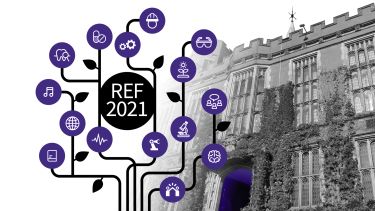Biosciences at Sheffield has been rated in fourth in the UK in terms of the quality of research, with 98 per cent of research and impact from the School of Biosciences classed as world-leading or internationally excellent in the Research Excellence Framework (REF) 2021.
The University of Sheffield is today (12 May 2022) marking the REF 2021 results by celebrating pioneering research, which is addressing some of the biggest global challenges and making a real-world impact.
REF 2021 is a national assessment of the research taking place across UK universities. Across all of its submissions, 92 per cent of the University of Sheffield’s research has been classed as world-leading or internationally excellent.
Find out more about the University of Sheffield's REF 2021 results
Research features
Read the features below to find out about some of the impact that biosciences research at the University of Sheffield is making.
Pesticides are a key part of modern agriculture, but with often unpredictable effects damaging crucial elements of our ecosystem, where does regulation draw the line? Professor Lorraine Maltby explains how we can mitigate ecological harm by changing the way we think about our environment.
An abandoned school isn’t where you’d expect to find researchers trying to solve the problem of feeding a world of 10 billion. Then again, neither is a refugee camp. But this team of University of Sheffield researchers are nothing short of resourceful.



